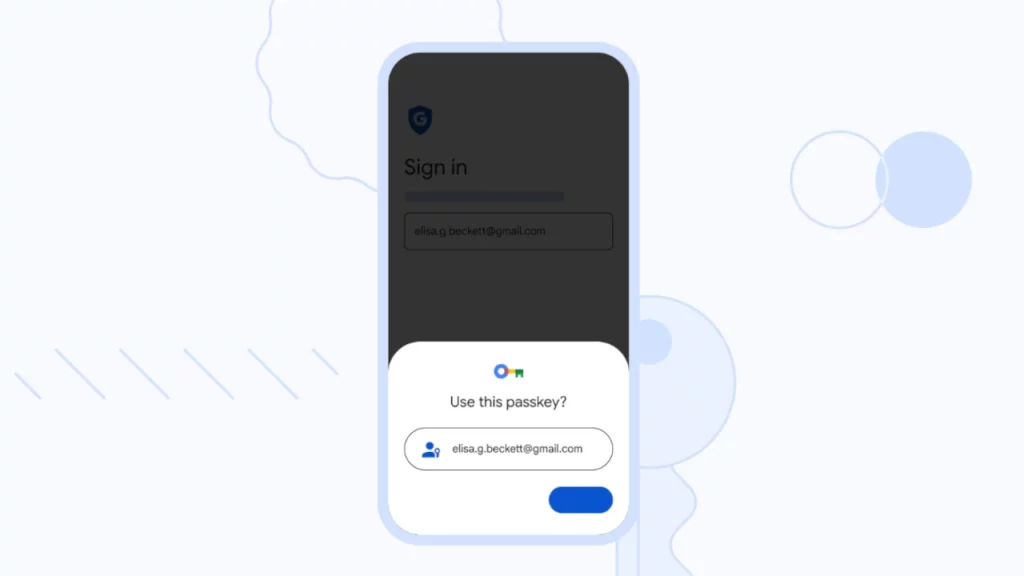Passkeys are a relatively newer type of authentication factor that uses biometric data or a hardware token to verify a user’s identity. Unlike passwords, which are vulnerable to hacking and phishing attacks, passkeys are more secure and convenient to use. They are harder to crack because they require a physical object or biometric feature to authenticate the user, and they are more resistant to phishing attacks. With passkeys, users can authenticate themselves without having to remember complex passwords, making it a more user-friendly and secure way of accessing their accounts. With security breaches becoming increasingly common, Google has added an extra layer of security to Accounts, and it comes in the form of passkeys.
Passkeys can use Fingerprint Sensor & Face Unlock
To set up passkeys, users need to go to their Google Account settings as passkeys are not enabled by default. Administrators of Google Workspace accounts will also soon have the option to enable passkeys for their end-users during sign-in. With passkeys, users can enjoy a passwordless sign-in experience that is more convenient and secure than anything Google Accounts offer currently. Since most smartphones these days come with a fingerprint sensor or face unlock support, almost anyone will be able to use this new security feature.

As mentioned previously, Passkeys are more secure than passwords because they require a physical object or biometric feature to authenticate the user, making them resistant to online attacks, including phishing. Google has now rolled out support for passkeys across Google Accounts on all major platforms, including Android and iOS. While passkeys will not replace current sign-in options, users can take advantage of this additional option. Recently, Google has been on a roll with the introduction of new privacy protection features to its services. For instance, Gmail just implemented Blue Checkmarks to strengthen its privacy profile, which will help users recognize authentic accounts.
RELATED:
- Google Unveils Chrome 113: Boosting Video Calls and Web Graphics Performance
- Google Play Store 35.5.14 now rolling out to Android devices
- Best ChatGPT Prompts for Web Developers
(Via)







